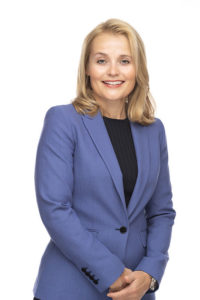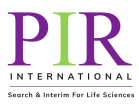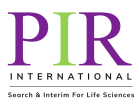Tone Kvåle
BioLeader Interview – Tone Kvåle (July 2020)

For the last 25 years I have been leading finance teams in biotech and med-tech companies headquartered in Norway. I recently stepped down as a CFO of Nordic Nanovector ASA, Norway where I worked for more than 7 years. I am currently on the board of Bonesupport AB, Sweden and Chair of the Audit Committee. I have a diploma in Finance & Administration.
On a personal level, I live outside of Oslo, Norway, and I have a partner and a grown-up son. Hobbies include cross country skiing, mountain hiking, orienteering and reading books.
Key milestones in your career journey to date?
- Became CFO of Dynal Biotech AS, Norway in 1998 at age 28 years.
- Sales process of Dynal Biotech AS, Norway to Invitrogen in the US in 2005.
- Transfer to Invitrogen (now Thermo Fisher), California and rapid adaption to the new organisation. Worked with integration of new acquisitions and financial head of one of the divisions. (2005/2006).
- IPO in Norway in 2015 as CFO (Nordic Nanovector ASA).
- IPO in Sweden in 2017 as board member and chair of Audit committee (Bonesupport AB).
Who has had the greatest influence over your career?
My dad, who designed and built up a successful production plant to produce wooden barrels for the fishing industry, taught me to work hard to achieve my goals. He gave me responsibility for part of the production from the age of 10; he never questioned that I could not do the physical hard work because I was too young or a girl.
To a large degree I have been guided by my integrity and followed my instincts. Trusted colleagues have been excellent sounding boards over the years. I have been inspired by colleagues who have gone above and beyond expectations in performance and problem solving.
Your approach to spotting and developing top talent?
First, you need to know your team. Encourage them to speak up and challenge them by assigning them projects outside their comfort zone. Have a clear expectation of the roles, responsibilities and required skillsets of your team members. Be a good role model!
What attributes make an outstanding leader in today’s world?
Honesty. Manage expectations. High integrity. Hire employees that might be better than yourself. Have a clear vision and know when to change course and help other to do the same. Be passionate about the job. Understand the company’s technology very well and have strong communication skills.
What is our industry’s contribution to improving climate change?
Not sure we have accomplished as much as other industries, but we should encourage:
- More virtual meetings to reduce travel.
- Convert large healthcare conferences into virtual events.
- Improve sourcing and logistics function to reduce the number of shipments.
- Replace non-degradable packaging.
How do you create a culture of continual learning, innovation and curiosity?
- Bring in young, talented students to interact on specific projects with senior employees.
- Host internal training/information sessions from different functions in the organization.
- Create a culture where failures and mistakes are accepted.
What’s your hidden talent or something that might surprise others about you?
- I taught my son and his team soccer for 2 years from the age of six; from a standing start!
- I find outdoor sports like rock climbing and hiking great levellers to my professional life.
Thoughts on the current funding model for early stage companies?
Governments should take a leading role in securing funding of life science companies at an early stage. During the COVID-19 outbreak biotech companies in Norway without income or a strong balance sheet did not receive any extraordinary governmental funding or support, as most of other type of businesses did.
What will be the biggest technological transformation in the industry over the next 5 years?
Artificial intelligence (AI) applications are being developed to leverage the analytic capabilities of humans via medical image reconstruction and noise reduction. AI solutions will enable clinicians to better predict risk and patient outcomes. These innovations will replace time consuming data gathering, with a more cost-effective analytic approach, before taking clinical decision. Patients will benefit from this through more precise diagnosis and treatment.
Your views on encouraging volunteering amongst colleagues?
Volunteer work can be an incredibly good way of broadening ones view and gaining a wider perspective of life outside the often very demanding “company bubble”; in particular when working for start-ups/early stage companies. It is also a good team building exercise to meet your colleagues outside the daily working environment.
Your legacy to the sector?
I have built up teams with excellent individuals who I hope will continue “to never stop learning” and to work with high integrity.
Your simple philosophy on life?
Move on and never look back.
Words of wisdom?
- Best advice I was given: Never stop learning and growing as a person.
- Advice I would give: Results are more important than style.
- What I wish I’d known: Trust your gut instinct.
Click here to read more of our BioLeaders interviews.

